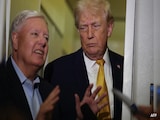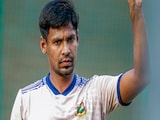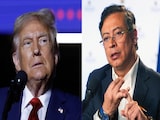Citing the region's collaborative effort to deal with the COVID-19 pandemic, Prime Minister Narendra Modi on Thursday called for greater integration among South Asia and the Indian Ocean island countries to deal with their challenges.
Health leaders, experts and officials from Afghanistan, Bangladesh, Bhutan, Maldives, Mauritius, Nepal, Pakistan, Seychelles and Sri Lanka along with India attended the workshop.
"If the 21st century is to be the Asian century, it can not be so without greater integration among the countries of South Asia and the Indian Ocean islands. The spirit of regional solidarity shown during the pandemic has proven that such integration is possible," he said at a workshop on "COVID-19 Management: Experience, Good Practices and Way Forward" with 10 neighbouring countries, including those in the extended neighbourhood.
In his virtual address, PM Modi said the spirit of collaboration among these countries is a valuable takeaway from this pandemic and pitched for a similar cooperation in the ongoing deployment of vaccine.
"Through our openness and determination, we have managed to achieve one of the lowest fatality rates in the world. Today, the hopes of our region and the world are focused on rapid deployment of vaccines. In this too, we must maintain the same cooperative and collaborative spirit," he said.
Addressing representatives of these countries, he said their cooperation in health has already achieved so much since the pandemic's outbreak and asked if they can raise their ambition further.
The Prime Minister then offered some suggestions, including creating a special visa scheme for the region's doctors and nurses so that they can travel quickly within it during health emergencies on the request of the receiving country.
He also wondered if civil aviation ministries of these countries coordinate a regional air ambulance agreement for medical contingencies.
"Can we create a regional platform for collating, compiling and studying data about the effectiveness of COVID-19 vaccines among our populations?
"Can we similarly create a regional network for promoting technology-assisted epidemiology, for preventing future pandemics?" PM Modi said.
PM Modi asked if these countries can share their successful public health policies and schemes beyond COVID-19 and offered Ayushman Bharat, a health insurance cover for the poor, and Jan Arogya scheme, under which medicines are sold at affordable rates, as case studies from India for its friends in the region.
"Such collaboration can become the pathway for greater regional cooperation among us in other areas too. After all, we share so many common challenges --climate change, natural disasters, poverty, illiteracy, and social and gender imbalances. But we also share the power of centuries'' old cultural and people-to-people linkages," he said.
PM Modi asserted that if the countries focus on all that unite them, then the region can overcome not only the present pandemic but its other challenges too.
Noting that experts had voiced concerns about the dangers the densely-populated region faced following the COVID-19 outbreak, he said it met this challenge from the very beginning with a coordinated response.
In March last year, the region's countries were the first to come together for recognising the threat and committing to fight it together, and many other regions and groups followed our early example, he said.
"We created the COVID-19 Emergency Response Fund to meet the immediate costs of fighting the pandemic. We shared our resources, medicines, PPE, and testing equipment. And, above all, we shared the most valuable commodity: knowledge, through collaborative training of our health workers," he said.















